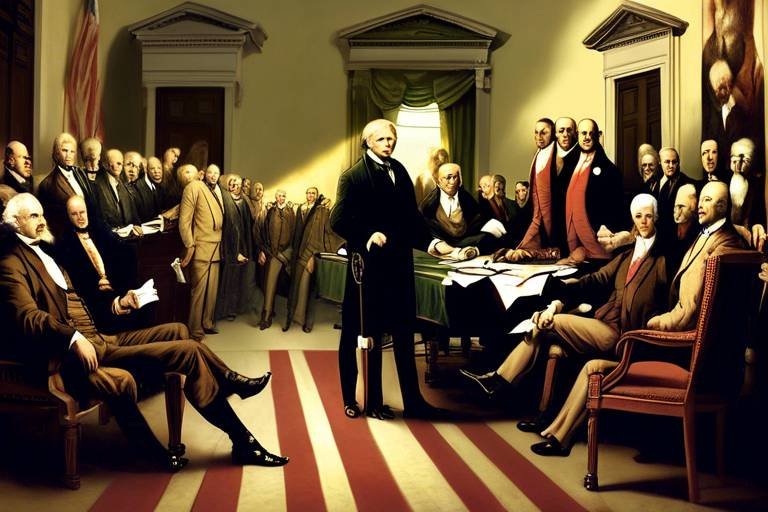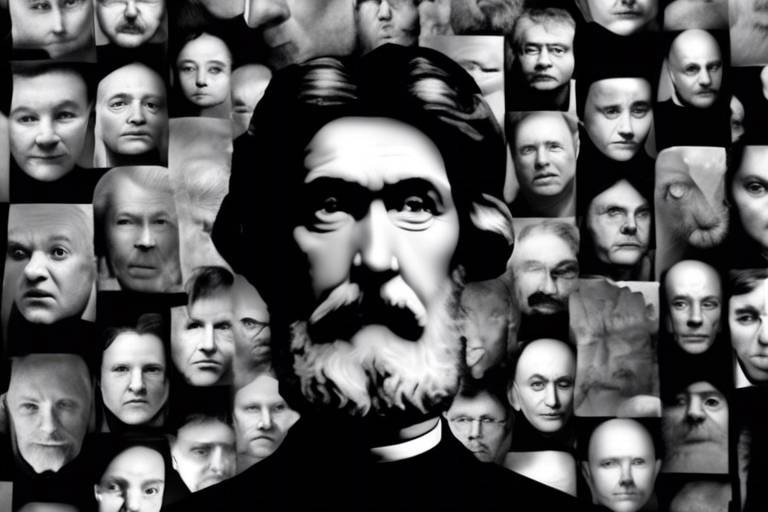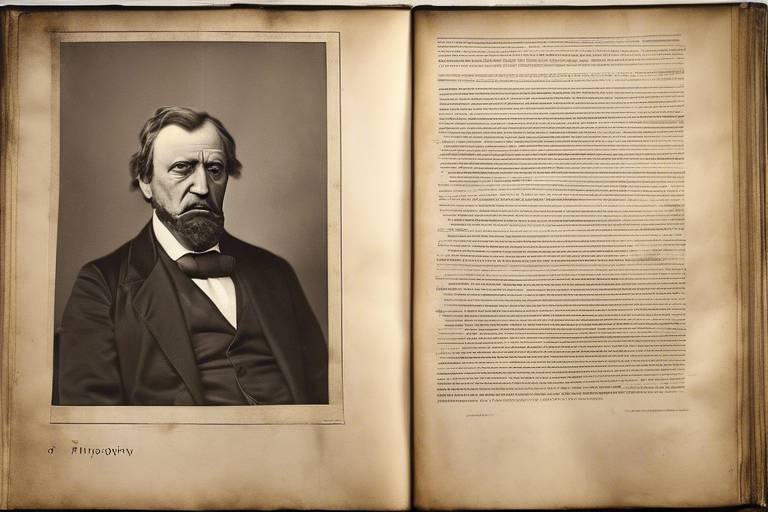The Philosophy and Politics of Human Trafficking
Human trafficking is not just a crime; it’s a profound violation of human rights that affects millions worldwide. It’s a complex issue that intertwines with various philosophical and political frameworks, making it essential to explore its depths to understand its implications fully. This article delves into the intricate relationship between the ethical considerations surrounding human trafficking and the political responses aimed at combating it. By examining the philosophical perspectives on exploitation, autonomy, and consent, we can better grasp the moral dilemmas involved. Simultaneously, we will investigate the political frameworks and policies that shape the global response to this pressing issue.
At its core, human trafficking is the exploitation of individuals through coercion, deception, or force. It manifests in various forms, including sex trafficking, labor trafficking, and organ trafficking. Each of these forms presents unique challenges and ethical considerations. According to the International Labour Organization, it is estimated that around 40.3 million people are victims of modern slavery globally, highlighting the urgent need for effective strategies to combat this crime. The sheer scale of this issue calls for a multifaceted approach that includes both philosophical inquiry and political action.
In this article, we will explore how philosophical theories can illuminate the ethical dimensions of human trafficking. For instance, the principles of autonomy and consent are central to discussions about individual rights. When these principles are violated, as they often are in trafficking situations, the implications for victims are dire. Moreover, we will assess how different ethical theories, such as utilitarianism and deontology, offer varied insights into the moral implications of trafficking practices, thereby shaping our understanding of victimhood and agency.
On the political front, the response to human trafficking is governed by a mix of national and international frameworks. Various policies, legislation, and treaties have emerged to combat trafficking and protect victims. However, the effectiveness of these measures varies significantly across different countries. Understanding the political landscape is crucial for developing comprehensive strategies to address this issue. The international community, including governments and non-governmental organizations (NGOs), plays a vital role in responding to human trafficking, providing support for victims, and raising awareness about this heinous crime.
As we navigate through the complexities of human trafficking, we will also highlight the collaborative efforts made by NGOs and governmental organizations. Their strategies and effectiveness in combating trafficking on the ground are essential components of the global response. Additionally, we will examine international treaties, such as the Palermo Protocol, which set standards for combating human trafficking, discussing their significance and the challenges faced in their implementation.
Ultimately, the philosophy and politics of human trafficking are deeply intertwined. By understanding the ethical considerations and political frameworks, we can foster a more informed dialogue around this pressing issue. The fight against human trafficking requires not only robust policies but also a shift in societal attitudes towards exploitation and victimhood. Only through a comprehensive understanding of these dimensions can we hope to make meaningful progress in eradicating this crime and supporting its victims.
- What is human trafficking? Human trafficking is the exploitation of individuals through coercion, deception, or force, and it can take various forms, including sex trafficking and labor trafficking.
- How many people are affected by human trafficking? It is estimated that around 40.3 million people are victims of modern slavery globally, according to the International Labour Organization.
- What are the key philosophical issues related to human trafficking? Key issues include autonomy, consent, and moral responsibility, which are central to understanding the ethical dilemmas surrounding exploitation.
- What role do NGOs play in combating human trafficking? NGOs are instrumental in raising awareness, providing support for victims, and implementing strategies to combat trafficking on the ground.
- What are international treaties related to human trafficking? Treaties like the Palermo Protocol set standards for combating human trafficking and protecting victims, although challenges in implementation persist.
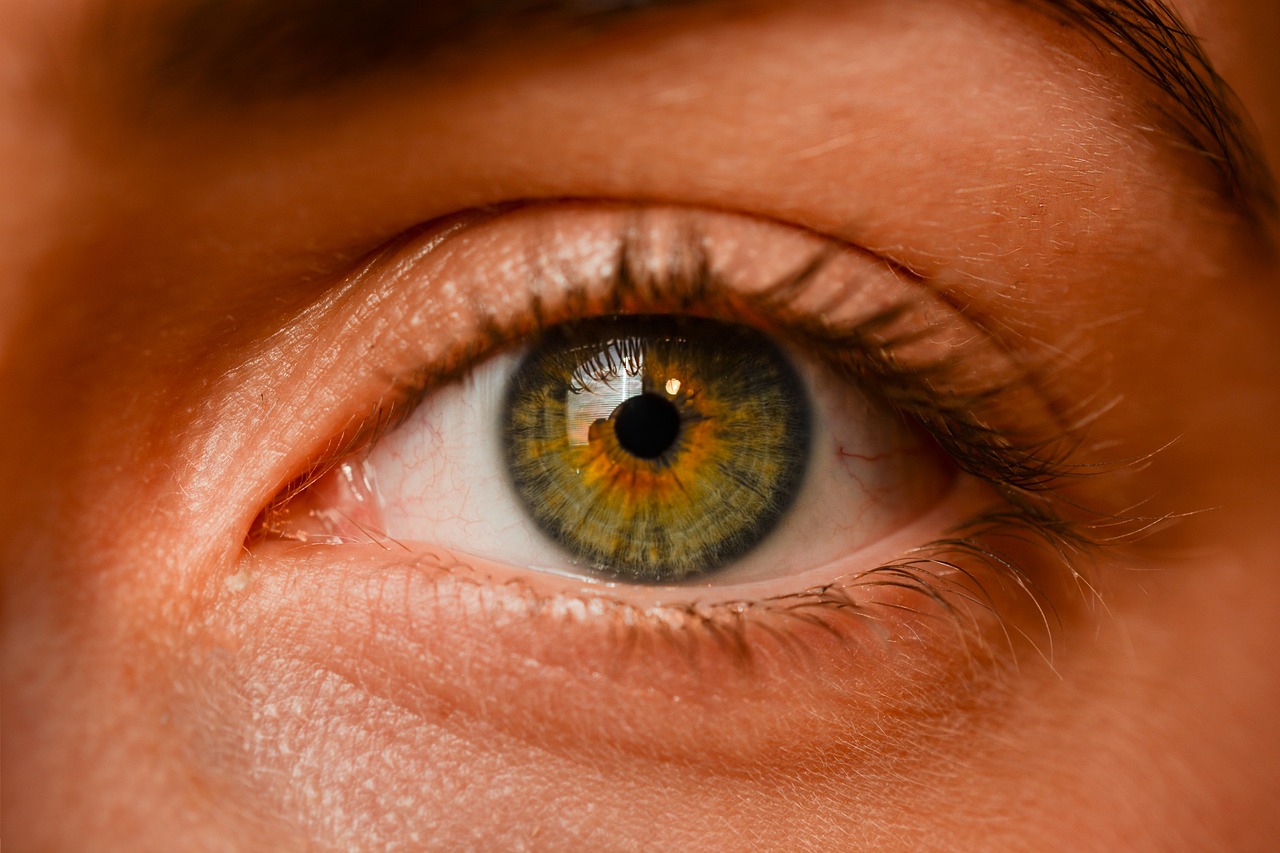
Understanding Human Trafficking
Human trafficking is a multifaceted crime that takes on various forms, often shrouded in secrecy and misunderstanding. At its core, it involves the exploitation of individuals through coercion, force, or deception. This crime is not confined to any one region or demographic; it is a global issue that affects millions of people across the world. According to estimates from the International Labour Organization, approximately 40.3 million people are victims of human trafficking globally, with women and children making up a significant portion of this grim statistic.
The forms of trafficking are as diverse as the individuals affected. They can be categorized into several types, including:
- Sex Trafficking: Involves the coercion of individuals into engaging in commercial sex acts.
- Labor Trafficking: Involves the exploitation of individuals for labor or services through force, fraud, or coercion.
- Child Trafficking: A particularly heinous form that involves the illegal trade of children for various exploitative purposes, including forced labor and sexual exploitation.
- Organ Trafficking: The illegal trade of human organs, often involving coercion or deception.
Human trafficking is often described as a modern-day form of slavery. The United Nations Office on Drugs and Crime defines it as the act of recruiting, transporting, transferring, harboring, or receiving a person through the use of force, coercion, or deception for the purpose of exploitation. This definition underscores the serious violations of human rights that occur within the context of trafficking.
One of the most alarming aspects of human trafficking is its global prevalence. It transcends borders, cultures, and socio-economic statuses, making it a complex issue that requires a multifaceted approach to combat. The rise of technology and the internet has also facilitated new avenues for traffickers to exploit vulnerable individuals, creating a dire need for awareness and preventive measures.
Understanding the scope of human trafficking is crucial for developing effective policies and interventions. It is not just a crime against individuals; it is a violation of fundamental human rights that demands a collective response from governments, organizations, and communities worldwide. In the fight against this abhorrent practice, awareness, education, and advocacy play pivotal roles in dismantling the systems that allow it to thrive.
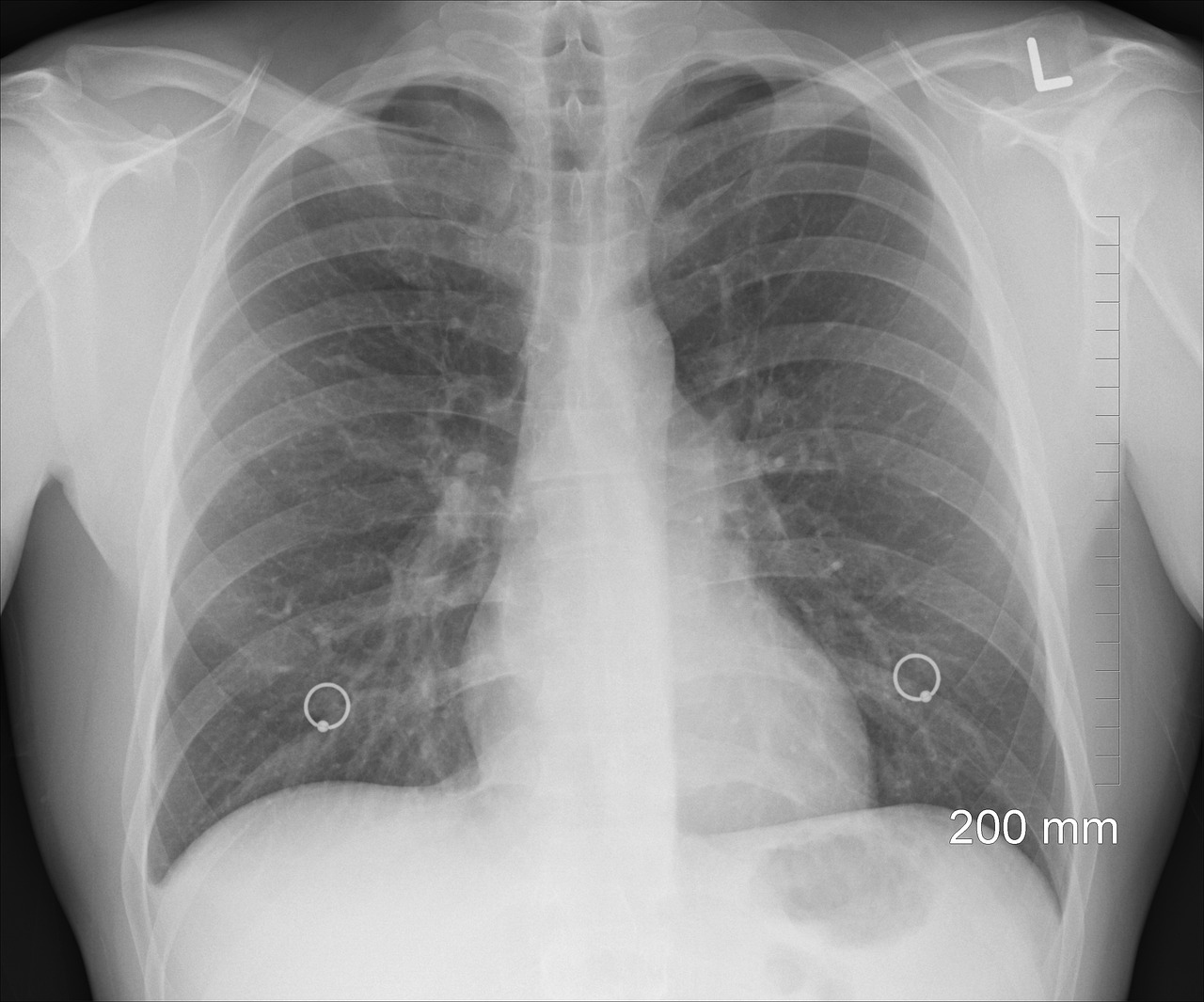
Philosophical Perspectives on Exploitation
When we delve into the murky waters of human trafficking, we encounter a myriad of philosophical questions that challenge our understanding of ethics, morality, and human rights. This complex issue is not just about the physical act of trafficking; it’s about the profound implications of exploitation on individuals' lives. At the heart of this discussion lies the concepts of autonomy and consent. These principles are supposed to empower individuals to make choices about their own lives, yet they are often brutally violated in the context of trafficking.
Imagine a world where every person has the freedom to choose their own path, like a bird soaring through the sky. Unfortunately, for many victims of trafficking, that freedom is snatched away, leaving them trapped in a cage of exploitation. The violation of autonomy is not just a legal issue; it raises ethical questions about our responsibilities toward others. Are we, as a society, complicit in these violations if we turn a blind eye? This is where the philosophical inquiry becomes deeply personal and urgent.
The principles of autonomy and consent are central to discussions about human trafficking. Autonomy refers to the right of individuals to make informed decisions about their own lives, while consent is the agreement to participate in an action or relationship. In the context of trafficking, these principles are often disregarded, leading to a tragic loss of dignity for victims. Many victims are coerced into situations where their ability to consent is compromised, whether through force, manipulation, or deceit. This raises the question: can true consent exist in environments marked by fear and coercion?
To illustrate this point, consider the following scenarios:
- A young woman is promised a lucrative job abroad but is instead sold into sexual exploitation.
- A child is forced to work in hazardous conditions, stripped of the chance to choose a different path.
In both cases, the victims are deprived of their autonomy and the ability to give genuine consent. This highlights the ethical dilemma we face: how do we ensure that individuals are protected from such exploitation while respecting their rights?
Different ethical theories offer varied insights into the moral implications of human trafficking. For instance, utilitarianism focuses on the consequences of actions, suggesting that the rightness of an action is determined by its ability to maximize overall happiness. From this perspective, trafficking is clearly wrong because it causes immense suffering to individuals and communities. On the other hand, deontological ethics emphasizes the importance of duty and adherence to moral rules. This viewpoint argues that trafficking is inherently wrong, regardless of its consequences, because it violates the moral rights of individuals.
These ethical frameworks not only help us understand the gravity of trafficking but also guide our responses to it. They compel us to consider what our moral obligations are to victims and how we can advocate for their rights. The challenge lies in balancing these theories with practical approaches to combatting trafficking and supporting survivors.
Understanding victims' experiences is crucial for framing the discourse around agency. Victimhood is often perceived in a way that strips individuals of their agency, reducing them to mere statistics or tragic stories. However, it’s essential to recognize that victims can also be agents of change in their own lives. By acknowledging their strength and resilience, we can empower them to reclaim their autonomy and rebuild their lives.
In this context, we must ask ourselves: how can we create environments that foster agency among survivors? This involves not only providing support and resources but also listening to their voices and respecting their choices. By doing so, we honor their dignity and help pave the way for a more just society.
In conclusion, the philosophical perspectives on exploitation in human trafficking challenge us to rethink our ethical responsibilities and the frameworks we use to address this critical issue. By engaging with these ideas, we can better understand the complexities of trafficking and work toward solutions that prioritize the rights and dignity of all individuals.
1. What is human trafficking?
Human trafficking is a crime involving the exploitation of individuals through coercion, force, or deception for various purposes, including forced labor and sexual exploitation.
2. How do autonomy and consent relate to human trafficking?
Autonomy and consent are violated in human trafficking situations, as victims are often coerced or manipulated into situations where they cannot make free choices.
3. What are the ethical theories surrounding human trafficking?
Utilitarianism focuses on the consequences of actions, while deontological ethics emphasizes moral duties. Both perspectives highlight the wrongness of trafficking.
4. How can we empower trafficking survivors?
Empowering survivors involves providing resources, support, and opportunities for them to reclaim their autonomy and make informed choices about their lives.

Autonomy and Consent
When we dive into the murky waters of human trafficking, two concepts emerge as beacons of light: autonomy and consent. These principles are not just abstract ideas; they are fundamental to understanding the rights of individuals and the ethical implications of their exploitation. In an ideal world, every individual would have the right to make decisions about their own lives, free from coercion or manipulation. However, human trafficking shatters this ideal, stripping victims of their autonomy and rendering their consent meaningless.
To grasp the gravity of this violation, we must first define what autonomy and consent mean in this context. Autonomy refers to the capacity of an individual to make informed, uncoerced decisions about their own life. Consent, on the other hand, is the agreement to engage in a specific act or relationship, ideally given freely and with full understanding of the circumstances. In cases of trafficking, these concepts are often manipulated or outright ignored. Victims may be coerced into believing they are consenting to their circumstances, when in reality, they are trapped in a web of deception and exploitation.
Consider this: when a person is trafficked, they are often led to believe they are entering into a legitimate job opportunity or a loving relationship. This deception can create a false sense of agency, where victims think they have made a choice, but in reality, their options are severely limited. This situation raises critical questions about the nature of consent. How can one truly consent when they are not fully aware of the implications of their decisions? The answer lies in recognizing that consent must be informed, voluntary, and free from coercion.
The philosophical implications of autonomy and consent extend beyond individual cases; they challenge our societal values and legal frameworks. For instance, many legal systems struggle to adequately protect the rights of trafficking victims, often treating them as criminals rather than as individuals whose autonomy has been violated. This misalignment creates a cycle of victimization, where survivors are hesitant to seek help for fear of being prosecuted or stigmatized.
Understanding the relationship between autonomy and consent is crucial for developing effective policies and support systems for trafficking victims. We must advocate for legal reforms that prioritize the rights and dignity of individuals, ensuring that their voices are heard and their autonomy respected. This might involve:
- Implementing comprehensive training for law enforcement and legal professionals on the nuances of consent and victimhood.
- Creating awareness campaigns that educate the public about the realities of human trafficking and the importance of informed consent.
- Establishing support systems that empower victims to reclaim their autonomy and make informed choices about their recovery.
In conclusion, the concepts of autonomy and consent are at the heart of the human trafficking crisis. By understanding and addressing these issues, we can begin to dismantle the systems that allow exploitation to thrive. It is our collective responsibility to ensure that every individual has the right to make choices about their own life, free from fear and coercion. Only then can we hope to create a world where human trafficking is a relic of the past, rather than a persistent reality.

Ethical Theories in Context
When we delve into the murky waters of human trafficking, it becomes evident that ethical theories play a crucial role in shaping our understanding and responses to this heinous crime. The moral implications of trafficking are vast and complex, often leading us to confront our own values and beliefs. Two prominent ethical frameworks—utilitarianism and deontology—offer diverging perspectives that can illuminate the nuances of this issue.
Utilitarianism, which focuses on the greatest good for the greatest number, might suggest that the end justifies the means. This perspective can be troubling when applied to human trafficking, as it risks dehumanizing victims by viewing them merely as means to an economic end. For instance, if a trafficker argues that their actions contribute to a larger economic benefit, the utilitarian lens could inadvertently validate such exploitation. However, this raises a critical question: at what cost does this 'greater good' come? The suffering and violation of individual rights cannot be overlooked, and the moral weight of such actions must be examined.
On the other hand, deontological ethics, which emphasizes duty and adherence to moral rules, provides a stark contrast. From this viewpoint, human trafficking is inherently wrong, regardless of the consequences. It upholds the intrinsic value of each individual, asserting that every person has rights that must be respected. This perspective aligns closely with the principles of autonomy and consent, which are often stripped away in trafficking situations. Deontologists would argue that the act of trafficking itself is a violation of these fundamental rights, and thus, it is categorically impermissible.
Furthermore, the intersection of these ethical theories can lead to a more comprehensive understanding of the issue. For instance, while utilitarianism may highlight the broader societal impacts of trafficking, deontology reminds us that the individual experiences of victims must not be overshadowed by statistical outcomes. This duality invites us to consider the moral responsibilities of society in combating trafficking—not just in terms of policy and legislation but also in fostering a culture of respect for human rights.
In addition to these theories, the concept of victimhood versus agency plays a pivotal role in ethical discussions. Many victims of trafficking are perceived solely as victims, which can inadvertently strip them of their agency and potential for recovery. Ethical frameworks must account for the complexity of victim experiences, recognizing their strength and resilience. By acknowledging their agency, we empower survivors to reclaim their narratives and participate actively in their healing processes.
Ultimately, the ethical discourse surrounding human trafficking is not just an academic exercise; it has real-world implications for how we address this crisis. As we navigate the complexities of these ethical theories, we must remain vigilant in our commitment to uphold the dignity and rights of every individual. Understanding these frameworks can guide policymakers, activists, and society as a whole in crafting responses that are not only effective but also morally sound.
- What are the main ethical theories discussed in relation to human trafficking?
Utilitarianism and deontology are the primary ethical theories explored, each offering different perspectives on the moral implications of trafficking. - How does utilitarianism view human trafficking?
Utilitarianism focuses on the greatest good for the greatest number, which can lead to troubling justifications for trafficking if the economic benefits are prioritized over individual rights. - Why is deontology important in the context of trafficking?
Deontology emphasizes the inherent wrongness of trafficking, regardless of the outcomes, and upholds the importance of individual rights and moral duties. - How can recognizing victim agency impact recovery?
Acknowledging the agency of trafficking victims empowers them, allowing for a more holistic approach to recovery that respects their strength and autonomy.
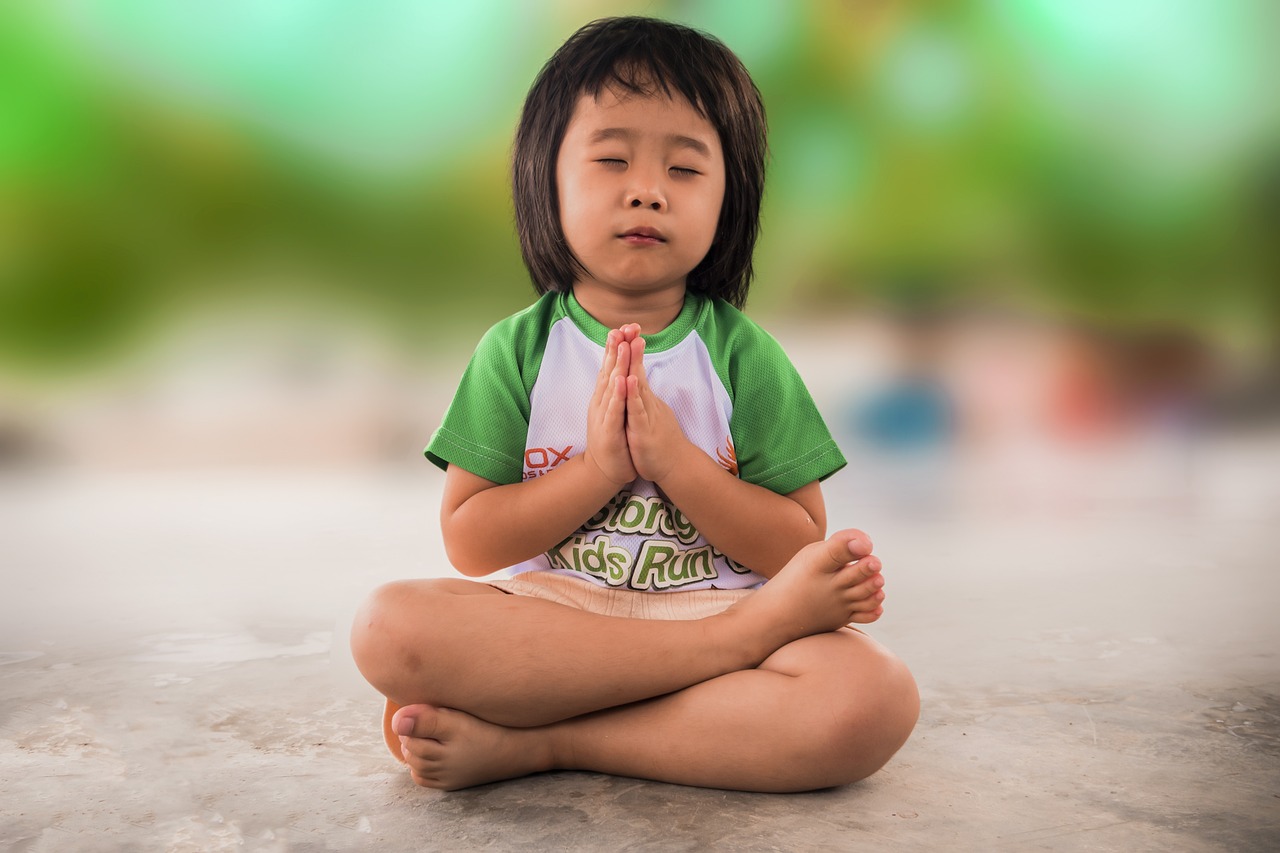
Victimhood and Agency
When we talk about human trafficking, it's easy to get lost in the numbers and statistics. However, behind every statistic lies a real person, a victim whose story is often overshadowed by their circumstances. Victimhood is frequently viewed through a lens of helplessness, where individuals are seen as mere casualties of a heinous crime. But what if we shift the narrative? What if we explore the concept of agency—the capacity of these individuals to make choices, assert their rights, and reclaim their lives?
The philosophical discourse surrounding victimhood and agency is crucial in understanding the complexities of human trafficking. Victims are not just passive recipients of exploitation; they often possess a remarkable resilience and strength. This resilience can manifest in various forms, such as resistance to their circumstances or the pursuit of freedom despite overwhelming odds. Recognizing this agency is essential not only for the victims themselves but also for society at large, as it challenges the often simplistic portrayal of victims as mere objects of sympathy.
Moreover, acknowledging agency means understanding that victims can play an active role in their recovery. It’s about empowering them to make choices about their futures rather than treating them as objects to be saved. This empowerment can take many forms, including:
- Access to Education: Providing opportunities for learning can help victims regain a sense of control over their lives.
- Support Systems: Building networks of support can enhance their ability to navigate post-trafficking challenges.
- Legal Assistance: Ensuring victims know their rights and have access to legal aid can help them reclaim their agency.
In many cases, the journey from victimhood to agency is not linear. It is fraught with challenges, often requiring significant emotional and psychological support. Society must move away from the notion that victims are solely passive recipients of help. Instead, we should view them as individuals capable of making decisions about their lives, deserving of respect and autonomy.
Furthermore, the concept of agency is intertwined with the idea of moral responsibility. If we recognize that victims have agency, we must also hold traffickers accountable for their actions. This dual recognition creates a more nuanced understanding of the issue, where both the victim's struggles and the perpetrator's crimes are acknowledged. It invites us to ask difficult questions about societal structures that allow trafficking to persist and challenges us to rethink our approaches to prevention and intervention.
In conclusion, the discourse around victimhood and agency is not just an academic exercise; it has real-world implications for how we approach the issue of human trafficking. By recognizing the inherent agency within victims, we can foster a more empowering narrative that encourages healing, resilience, and ultimately, justice. As we continue to combat this global crisis, let us remember that every victim has a story worth telling—a story that deserves to be heard, respected, and valued.
- What is the difference between victimhood and agency? Victimhood refers to the state of being a victim, often seen as passive. Agency refers to the capacity of individuals to make choices and take control of their lives.
- How can society help victims reclaim their agency? Providing education, legal support, and emotional assistance can empower victims and help them regain control over their lives.
- Why is it important to recognize victims' agency? Recognizing agency challenges the narrative of helplessness and promotes a more respectful and empowering approach to recovery and justice.

Political Frameworks and Policies
When it comes to tackling the heinous crime of human trafficking, political frameworks and policies play a critical role. These frameworks are not merely bureaucratic structures; they are the lifelines that can either empower or hinder efforts to combat trafficking. Governments around the world have recognized the urgency of this issue, leading to the development of various policies aimed at prevention, protection, and prosecution. But what do these frameworks really entail, and how effective are they in practice?
At the international level, treaties such as the United Nations Convention against Transnational Organized Crime and its Palermo Protocol serve as foundational documents. These agreements establish a common understanding of human trafficking and set minimum standards for countries to follow. However, despite these frameworks, implementation can vary dramatically from one country to another. Some nations have robust laws and dedicated resources, while others struggle with corruption, lack of political will, or insufficient funding.
In many cases, national policies are influenced by the global discourse surrounding human trafficking. For instance, the Trafficking Victims Protection Act (TVPA) in the United States has set a precedent for how countries can approach this issue. The TVPA not only focuses on the prosecution of traffickers but also emphasizes the importance of protecting and assisting victims. This dual approach has inspired similar legislation in other countries, creating a ripple effect that encourages a more comprehensive response to trafficking.
However, challenges persist. The effectiveness of these political frameworks often hinges on the collaboration between various stakeholders, including law enforcement, social services, and non-governmental organizations (NGOs). In many regions, a lack of coordination leads to gaps in protection for victims. For example, while laws may exist to prosecute traffickers, if victims are not identified and supported, they may find themselves trapped in a cycle of exploitation.
Moreover, the political climate can significantly impact the prioritization of human trafficking in policy agendas. In some countries, trafficking is overshadowed by other pressing issues, leading to inadequate resources being allocated for its prevention and victim support. To address this, advocates argue for the integration of trafficking prevention into broader social policies, such as education and economic development, which can tackle some of the root causes of vulnerability.
In summary, while political frameworks and policies are essential for combatting human trafficking, their effectiveness is contingent upon a variety of factors including implementation, collaboration among stakeholders, and the political will to prioritize this issue. As we continue to confront this global crisis, it is crucial to not only establish robust policies but also to ensure that they are effectively put into action to protect those most at risk.

Global Responses to Trafficking
Human trafficking is a global crisis that requires a concerted response from various stakeholders, including governments, non-governmental organizations (NGOs), and international bodies. The sheer scale and complexity of trafficking necessitate a collaborative approach, as no single entity can tackle this issue alone. The international community has made significant strides in addressing this heinous crime, but challenges remain. Understanding these responses is crucial for grasping the broader implications of trafficking and the ongoing efforts to combat it.
One of the most vital aspects of the global response to trafficking is the establishment of international treaties and agreements aimed at setting standards for prevention, protection, and prosecution. For instance, the Palermo Protocol, adopted in 2000, is a landmark agreement that seeks to combat human trafficking, particularly women and children. This protocol emphasizes the importance of international cooperation and the need for countries to adopt comprehensive measures to fight trafficking effectively. However, the implementation of these agreements varies widely across nations, leading to gaps in enforcement and protection.
In addition to treaties, numerous NGOs play a pivotal role in the fight against trafficking. These organizations often serve as the frontline defenders, providing essential services such as shelter, legal assistance, and psychological support to victims. They also raise awareness about the realities of trafficking, working tirelessly to educate communities and policymakers alike. For example, organizations like Polaris and Anti-Slavery International have developed robust programs that not only support victims but also advocate for systemic change in laws and policies. Through their efforts, they shine a light on trafficking networks and help dismantle the systems that enable this crime.
Moreover, governments are increasingly recognizing the need for comprehensive anti-trafficking legislation. Many countries have enacted laws that criminalize trafficking and provide frameworks for victim support. However, the effectiveness of these laws often hinges on adequate resources and training for law enforcement agencies. A well-trained police force is essential for identifying victims, prosecuting traffickers, and ensuring that justice is served. Unfortunately, in many regions, law enforcement still lacks the necessary training and resources, leading to underreporting and insufficient prosecution of trafficking cases.
The challenge of addressing human trafficking is further compounded by the intersection of various social issues, such as poverty, migration, and gender inequality. For instance, vulnerable populations, particularly women and children, are often targeted by traffickers because of their precarious situations. This reality underscores the importance of adopting a holistic approach to trafficking that encompasses social and economic dimensions. By addressing the root causes of vulnerability, we can create a more effective and sustainable response to trafficking.
To illustrate the global landscape of trafficking responses, the following table summarizes key international treaties and their objectives:
| Treaty/Agreement | Year Adopted | Main Objectives |
|---|---|---|
| Palermo Protocol | 2000 | Combat trafficking, promote international cooperation, protect victims. |
| UN Convention Against Transnational Organized Crime | 2000 | Address organized crime, including human trafficking. |
| Council of Europe Convention on Action against Trafficking in Human Beings | 2005 | Protect victims, prevent trafficking, prosecute offenders. |
In conclusion, the global response to human trafficking is a multifaceted effort that involves treaties, NGOs, and government initiatives. While progress has been made, significant challenges remain. It is imperative for the international community to continue collaborating, sharing best practices, and addressing the root causes of trafficking to create a world where individuals can live free from exploitation.
- What is human trafficking?
Human trafficking is the exploitation of individuals through coercion, force, or deception, often for labor or sexual exploitation. - What are the main forms of human trafficking?
The main forms include sex trafficking, labor trafficking, and trafficking for organ removal. - How can I help combat human trafficking?
You can raise awareness, support NGOs working in this field, and advocate for stronger laws and policies. - What are the signs of human trafficking?
Signs include individuals who appear fearful, are unable to speak for themselves, or show signs of physical abuse.

Role of Non-Governmental Organizations
Non-Governmental Organizations (NGOs) play a pivotal role in the fight against human trafficking. These organizations often serve as the frontline defenders of victims, providing not only immediate assistance but also long-term support. Imagine a lifeline thrown to someone drowning in a sea of exploitation; that’s what NGOs represent for many victims of trafficking. They are the unsung heroes, tirelessly working to raise awareness, provide resources, and advocate for policy changes that protect the most vulnerable among us.
One of the key functions of NGOs is to offer direct support to trafficking survivors. This support can come in many forms, including shelter, legal assistance, medical care, and psychological counseling. By addressing the immediate needs of victims, NGOs help them regain a sense of security and autonomy, which is crucial for their recovery. For instance, organizations like the Polaris Project and the International Justice Mission have established comprehensive programs that guide survivors through the challenging process of reintegration into society.
Moreover, NGOs are instrumental in raising awareness about human trafficking. They conduct educational campaigns that inform the public about the signs of trafficking and the importance of reporting suspicious activities. These campaigns often utilize social media platforms, community workshops, and partnerships with schools to reach a broader audience. By spreading knowledge, NGOs empower individuals to recognize and combat trafficking in their own communities.
NGOs also play a critical role in advocating for policy changes. They work closely with governments and international bodies to influence legislation that addresses the root causes of trafficking. This advocacy is essential for creating a more effective legal framework that not only punishes traffickers but also protects victims. For example, organizations often provide research and data that highlight the need for stronger laws and better enforcement mechanisms. Their efforts can lead to significant changes in national and international policies, as seen with the adoption of the Palermo Protocol.
In addition to these functions, NGOs often collaborate with other stakeholders, including governmental organizations, law enforcement, and community groups. This collaboration enhances their effectiveness and ensures a more coordinated response to trafficking. By pooling resources and expertise, these partnerships can create comprehensive strategies that address both prevention and recovery. For instance, joint initiatives may involve training law enforcement officers to recognize trafficking signs and respond appropriately, thereby improving the overall system's response to this heinous crime.
However, the work of NGOs is not without challenges. They often face funding shortages and bureaucratic hurdles that can hinder their operations. In many cases, NGOs rely on donations and grants, which can fluctuate and impact their ability to provide consistent support. Despite these challenges, the resilience and dedication of these organizations shine through as they continue to advocate for change and support survivors.
In conclusion, the role of NGOs in combating human trafficking is indispensable. They not only provide immediate assistance to victims but also work tirelessly to create a more informed and proactive society. By raising awareness, advocating for policy changes, and collaborating with various stakeholders, NGOs help to forge a path toward a future where human trafficking is no longer a pervasive issue. Their efforts remind us that fighting against such a grave injustice requires a collective response, and every action counts.
- What is the primary role of NGOs in combating human trafficking?
NGOs provide direct support to trafficking survivors, raise awareness about the issue, and advocate for policy changes to protect victims and punish traffickers. - How do NGOs help trafficking survivors?
They offer services such as shelter, legal assistance, medical care, and psychological counseling to help survivors regain their autonomy and reintegrate into society. - What challenges do NGOs face in their work?
NGOs often encounter funding shortages and bureaucratic obstacles that can limit their ability to provide consistent support and services. - How can individuals support NGOs working against human trafficking?
Individuals can contribute by donating, volunteering, or spreading awareness about the issue and the work of these organizations.

International Treaties and Agreements
International treaties and agreements play a crucial role in the global fight against human trafficking. These legal frameworks not only establish standards for prevention and protection but also facilitate international cooperation in addressing this heinous crime. One of the most significant agreements in this realm is the Palermo Protocol, formally known as the United Nations Protocol to Prevent, Suppress and Punish Trafficking in Persons, especially Women and Children. Adopted in 2000, this protocol aims to combat human trafficking through a comprehensive approach that includes prevention, protection of victims, and prosecution of traffickers.
The Palermo Protocol emphasizes the importance of a victim-centered approach, recognizing that individuals who fall victim to trafficking are often subjected to severe violations of their rights. This shift from viewing victims as mere statistics to acknowledging their humanity is a vital step toward effective intervention. Additionally, the protocol encourages countries to strengthen their legal frameworks to criminalize trafficking and to implement measures that support victims in their recovery and reintegration.
Another key agreement is the Council of Europe Convention on Action against Trafficking in Human Beings, which came into force in 2008. This convention builds on the principles outlined in the Palermo Protocol, providing a more detailed framework for the protection of victims and the prosecution of offenders. It mandates that member states adopt national action plans to combat trafficking and ensure that victims have access to necessary support services, such as legal assistance, housing, and healthcare.
Despite these significant advancements, the implementation of such treaties often faces numerous challenges. For instance, while many countries have ratified these agreements, the actual enforcement of laws and policies can be inconsistent. Factors such as lack of resources, political will, and corruption can hinder effective action. To illustrate this, consider the following table that summarizes some of the key treaties and their primary objectives:
| Treaty | Year Adopted | Main Objectives |
|---|---|---|
| Palermo Protocol | 2000 | Prevent, suppress, and punish trafficking; protect victims' rights |
| Council of Europe Convention | 2008 | Protect victims; promote national action plans; enhance cooperation |
| UN Convention against Transnational Organized Crime | 2000 | Combat organized crime, including trafficking; enhance international cooperation |
Moreover, the process of harmonizing laws across different jurisdictions can be particularly daunting. Countries may have varying definitions of trafficking, which complicates international collaboration. This lack of uniformity can lead to gaps in protection and support for victims, as well as challenges in prosecuting traffickers who often exploit these inconsistencies.
In conclusion, while international treaties and agreements are vital in the fight against human trafficking, their effectiveness largely depends on the commitment of individual countries to implement and enforce these frameworks. It is crucial for nations to work together, share best practices, and ensure that victims are at the center of all anti-trafficking efforts. Only through sustained global cooperation and adherence to these treaties can we hope to make significant strides in eradicating human trafficking and restoring the rights and dignity of its victims.
- What is human trafficking? Human trafficking is the illegal trade of people for exploitation, including forced labor and sexual exploitation.
- What are the main international treaties addressing human trafficking? Key treaties include the Palermo Protocol and the Council of Europe Convention on Action against Trafficking in Human Beings.
- How do these treaties protect victims? They establish legal frameworks for victim protection, support services, and encourage countries to prosecute traffickers.
- What challenges do countries face in implementing these treaties? Challenges include lack of resources, political will, and inconsistencies in legal definitions of trafficking.
Frequently Asked Questions
- What is human trafficking?
Human trafficking is a serious crime that involves the exploitation of individuals through coercion, force, or deception. It can take various forms, including sex trafficking, labor trafficking, and organ trafficking, and it affects millions of people worldwide.
- How does human trafficking violate autonomy and consent?
Human trafficking fundamentally undermines the principles of autonomy and consent, as victims are often manipulated, coerced, or forced into situations against their will. This violation strips individuals of their rights and dignity, making it a significant ethical issue.
- What are the major ethical theories related to human trafficking?
Various ethical theories provide insight into human trafficking. For instance, utilitarianism focuses on the greatest good for the greatest number, while deontology emphasizes moral duties and rights. These perspectives help in understanding the moral implications of trafficking and the responsibilities of society to combat it.
- What role do NGOs play in combating human trafficking?
Non-Governmental Organizations (NGOs) play a crucial role in raising awareness, providing support for victims, and advocating for policy changes. They often operate on the ground, implementing programs that educate communities and assist survivors in their recovery journeys.
- What are some key international treaties addressing human trafficking?
International treaties like the Palermo Protocol set standards for combating human trafficking and protecting victims. These agreements aim to unify efforts across countries, but challenges in implementation often hinder their effectiveness.
- How can individuals help in the fight against human trafficking?
Individuals can contribute by educating themselves and others about human trafficking, supporting NGOs, advocating for stronger policies, and reporting suspicious activities. Every small action can help raise awareness and potentially save lives.
- What are the signs of human trafficking?
Signs of human trafficking may include individuals who appear overly submissive, lack personal identification, show signs of physical abuse, or are unable to leave their situation. Recognizing these signs is crucial for intervention and support.
- What can governments do to combat human trafficking?
Governments can implement stronger laws and policies, enhance victim support services, and improve training for law enforcement. Collaborative efforts with international organizations and NGOs can also strengthen the global response to trafficking.











